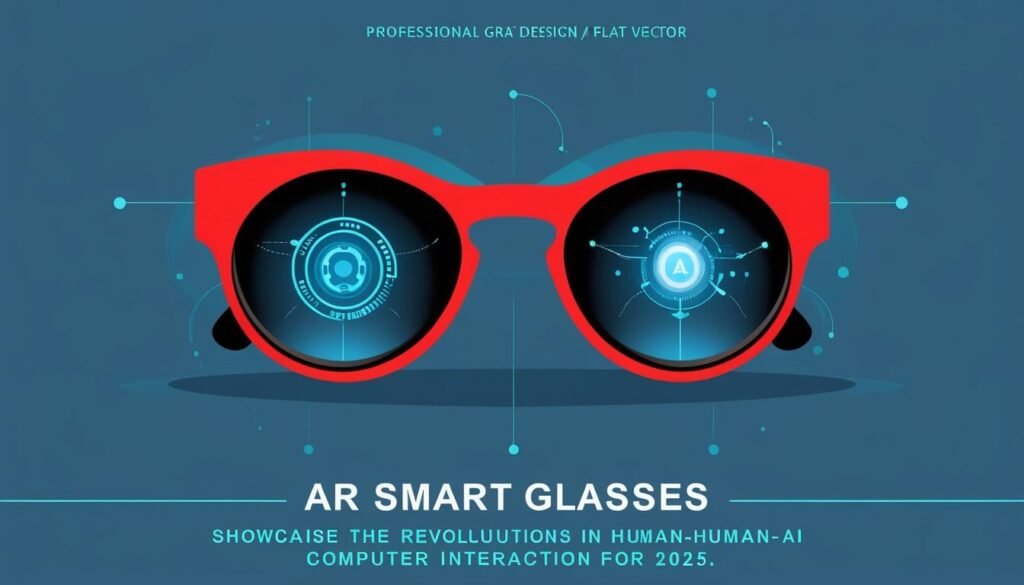As 2025 approaches, augmented reality smart glasses are set to redefine human-computer interactions, with major companies like Meta and Samsung leading the charge.
The landscape of augmented and virtual reality (XR) technology is undergoing significant transformation, characterised by advancements in artificial intelligence (AI) and emerging products that promise to redefine human-computer interactions. As businesses and consumers look towards the future, 2025 promises to be a pivotal year for XR, particularly in the realm of augmented reality (AR) smart glasses.
According to XR Today, the year 2024 marked a critical shift in the technology sector, with AI emerging as a dominant force. The proliferation of generative AI (genAI) products began to overshadow previous ambitions within XR technology. Industry leaders believe that AI’s capacity to integrate with existing systems and enhance user interactions forms the backbone of the coming revolution in wearable technology.
The potential of AR smart glasses has piqued the interest of various firms seeking to establish themselves in this burgeoning market, which some proponents believe signifies a pivotal moment akin to the smartphone boom. Companies such as Meta, Samsung, XREAL, Vuzix, and ReoNeo are all vying to stake their claim. Meta’s partnership with EssilorLuxottica has garnered attention, indicating a clear commitment to AR technology. Meanwhile, Samsung has generated anticipation for a forthcoming XR device meant to compete with Meta’s offerings, even as competitors like RealWear are actively deploying smart wearables in professional settings to improve operational efficiency.
The transformative prospects of AR technology extend beyond niche applications; if AR smart glasses achieve widespread consumer adoption, a significant shift in how businesses operate could follow. Similar to the impact of smartphones when they first hit the market, business leaders will likely inquire about integrating these new technologies to optimise operations and reduce costs.
In the immediate future, reports suggest that Meta is preparing to enhance its Ray-Ban smart glasses with an AR heads-up display, pushing the boundaries of its current capabilities. As reported by the Financial Times, the company is planning to unveil a next-generation Ray-Ban device in 2025, featuring advanced augmented reality visuals, building on its recent integration of AI. This initiative is part of Meta’s broader strategy to position itself at the forefront of AR innovation, following the introduction of the Orion device, which showcases advanced features for fully-fledged AR wearables.
Conversely, Samsung’s foray into AR is marked by its ongoing development of an XR-enabled smart glasses model, further integrating its Galaxy ecosystem. While specific details remain scarce, recent patent filings illustrate the company’s exploration of voice control, media playback, and touch sensor features. This hints at a strategy to provide real-time communication and intuitive user inputs, thus positioning its upcoming product as a strong competitor in the marketplace.
The anticipated release of Samsung’s “Project Moohan,” an XR headset expected to launch in 2025, could also mark a significant addition to the landscape, promising to leverage AI technology for enhanced user experiences. With an operating system built on Android, the new headset is designed to tap into a wide array of applications, presenting a substantial step towards fostering XR adoption among consumers.
As 2025 approaches, the evolving narratives around both Meta and Samsung highlight a race among technology leaders to establish themselves as front-runners in the AR smart glasses market. With AI at the helm, these advancements hold the potential to reshape interactions across both consumer and business environments, underscoring an exciting, yet uncertain, future for XR technology. The continuous evolution of these technologies suggests that the next chapter in human-computer interaction is just beginning, with companies poised to explore innovative solutions that could define how we connect with digital content.
Source: Noah Wire Services
- https://www.gizmogo.com/shortnews/future-of-xr-google-tech-titans-lead-2025-innovations – This article discusses how Google and other tech leaders are advancing XR technology in 2025, including innovations in smart glasses and AR ecosystems, which supports the claim of significant transformation in XR technology.
- https://mazerspace.com/trends-in-xr-for-2025-elevating-industries-with-mazer-technology/ – This article highlights the role of AI in XR, particularly in enhancing user experiences and improving outcomes, and mentions upcoming XR headsets and their potential impact, corroborating the integration of AI in XR advancements.
- https://www.luminatecx.com/blog/from-niche-to-necessary-xr-glasses-with-ai-to-dominate-2025 – This article discusses the evolution of XR glasses with AI, including Meta’s Orion glasses and Apple’s Vision Pro, and Google’s Android XR, supporting the claim of industry leaders like Meta and Google pushing the boundaries of AR technology.
- https://www.luminatecx.com/blog/from-niche-to-necessary-xr-glasses-with-ai-to-dominate-2025 – This article mentions Meta’s Orion glasses and Apple’s Vision Pro, as well as Google’s Android XR and Gemini 2.0, which aligns with the information about companies vying to establish themselves in the AR smart glasses market.
- https://mazerspace.com/trends-in-xr-for-2025-elevating-industries-with-mazer-technology/ – This article talks about the transformative impact of XR on industries, including manufacturing and medical fields, which supports the claim of AR technology extending beyond niche applications and potentially changing business operations.
- https://www.luminatecx.com/blog/from-niche-to-necessary-xr-glasses-with-ai-to-dominate-2025 – This article discusses the upcoming releases of XR headsets and glasses, such as Meta’s next-generation Ray-Ban device and Samsung’s Project Moohan, which are expected to leverage AI technology for enhanced user experiences.
- https://www.gizmogo.com/shortnews/future-of-xr-google-tech-titans-lead-2025-innovations – This article mentions Google’s advancements in smart glasses, including a patent to reduce light loss, which is part of the broader strategy to enhance AR technology and user interactions.
- https://mazerspace.com/trends-in-xr-for-2025-elevating-industries-with-mazer-technology/ – This article highlights the use of AI in XR learning environments and the development of platforms like Mazer Trainer, which supports the claim of AI integrating with existing systems to enhance user interactions.
- https://www.luminatecx.com/blog/from-niche-to-necessary-xr-glasses-with-ai-to-dominate-2025 – This article discusses the transition to AI-powered glasses and the potential for a post-mobile-phone era, which aligns with the idea of AR smart glasses redefining human-computer interactions.
- https://mazerspace.com/trends-in-xr-for-2025-elevating-industries-with-mazer-technology/ – This article mentions the partnership between Mazer and the Ocean Heart Group to use VR for medical purposes, illustrating the broader impact of XR technology beyond consumer applications.


